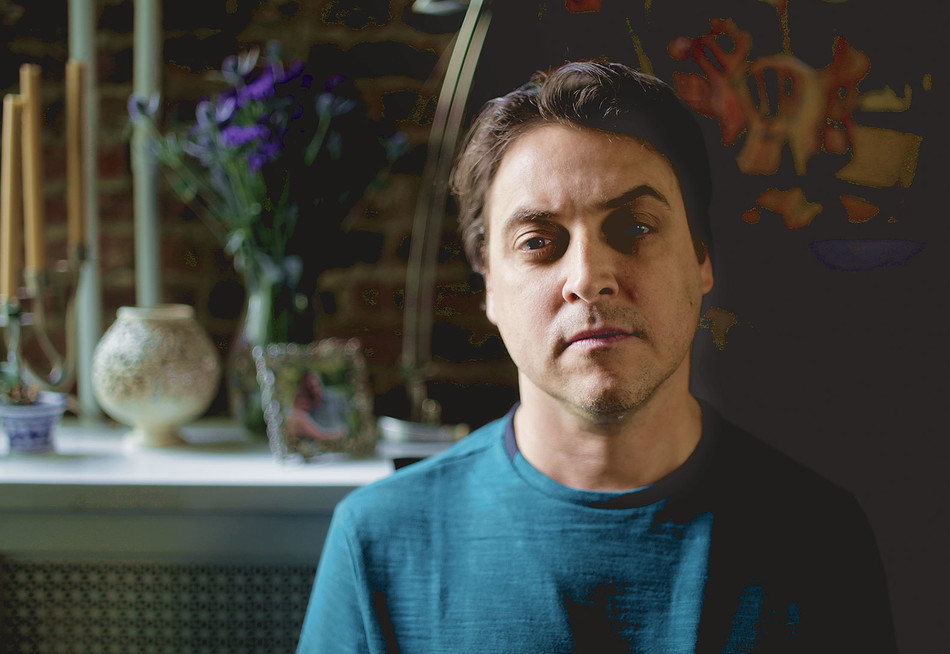A month into the Russian invasion of Ukraine, Mark Andryczyk, head of the Ukrainian-studies program at Columbia’s Harriman Institute, was seated on Revson Plaza not far from the International Affairs Building, where he teaches Ukrainian literature. The plaza overlooks Amsterdam Avenue, and Andryczyk, fifty-three, gazed south beyond 116th Street at the buildings and traffic as he calmly and humbly described the plight of an entire people.
“Putin stated that Ukraine doesn’t exist, that it’s not really a country,” said Andryczyk, who is a research scholar at Harriman, a premier center for the study of Russia, Eurasia, and East-Central Europe. “So he is trying to wipe out Ukrainian identity. The Russian military is going after museums, archives, intellectuals.” Andryczyk, his face etched with worry, suspected that his friends in Ukraine — prominent pro-democracy writers, poets, and academics, many of whom he has brought to Columbia over the past decade for events at Harriman — were on the Russian military’s list of targets. He also feared for his in-laws, who live in western Ukraine, where missiles were falling.
Andryczyk, well-versed in Ukrainian history, views the attacks and the evidence of civilian massacres and other war crimes as another grim chapter in the long battle over Ukrainian sovereignty, which includes the Great Famine of the 1930s, when Stalin’s policies caused millions of Ukrainians to starve to death. He minces no words in his assessment that Ukraine’s slow grind toward democracy over the past thirty years “terrifies Putin, because if Ukraine speaks with a voice that is heard by the world, then eventually Russia will have to finally address a long history of atrocities. There has never been an apology for the horrors committed in the name of this Russian imperial project,” he said.
Andryczyk grew up in a Ukrainian- American community in Philadelphia. But it was only when he traveled to Ukraine after college in the early 1990s, just after the fall of the Soviet Union, that he fell in love with the culture. “It was an extremely exciting time,” he said of the period he spent in Kyiv, the capital, and Lviv, a major cultural center. “This was a land that had been restricted for so many years, and now there was this freedom for artists to create, all this pent-up energy opening up to the world.”
At Columbia, Andryczyk teaches three classes: late-nineteenth- and early-twentieth-century literature; Soviet Ukrainian culture and literature of the 1920s; and literature of the post-Soviet era, his specialty. Many contemporary Ukrainian authors are his personal friends, and in 2017 Andryczyk published an anthology of their translated poetry and prose “so that English-speaking students could experience these wonderful writers,” he said.
Some of those writers were now in peril. Serhiy Zhadan, an internationally renowned poet, had been posting daily on social media from the heavily bombed city of Kharkiv. “He’s trying to keep people’s spirits up, delivering humanitarian aid and presenting poetry and music,” said Andryczyk. “He compared the city to an anthill that was kicked over: there’s destruction, but everyone’s working on something.”
Another friend, Volodymyr Rafeyenko, an award-winning novelist who had moved to Kyiv eight years ago to escape Russia’s military aggression in Ukraine’s Donbas region, was rescued from a bombarded area outside Kyiv and taken to a safer part of Ukraine. “My wife was one of the people working on trying to get him out,” said Andryczyk. Rafeyenko, a native Russian speaker who taught himself Ukrainian, had recently published a novel in Ukrainian about a refugee from the Donbas who escapes to Kyiv and learns the Ukrainian language, which changes his memory and his connections to his family. It’s called Mondegreen: Songs About Death and Love, and Andryczyk translated it into English. It was published in March.
“He was supposed to be at Columbia for a launch and a tour of North America in the spring,” Andryczyk said. “We still hope he’ll come over here.”
Andryczyk’s glance then wandered back to the Amsterdam Avenue corridor. “Look,” he said, his expression brightening. He pointed at the apartment building on the corner of 116th. In a fourth-floor window there hung the blue and yellow bands of the Ukrainian flag. “That’s wonderful to see,” said Andryczyk.
Then he got up and returned to the classroom to teach the literature he loves.
Listen to Andryczyk's recent interview with "Voices of Ukraine," a podcast produced by the Harriman Institute.
This article appears in the Spring/Summer 2022 print edition of Columbia Magazine with the title "Rhapsody in Blue and Yellow."



